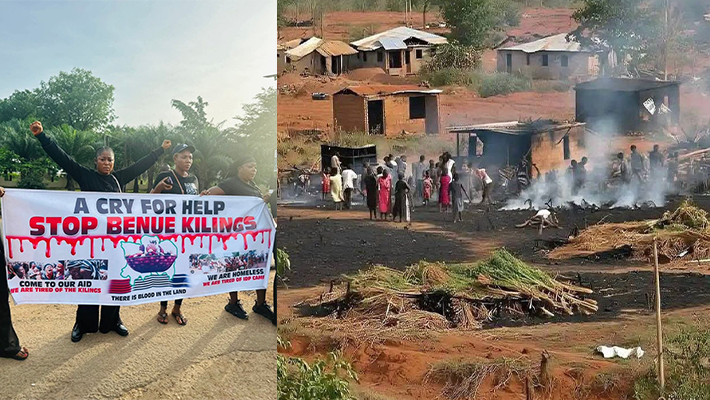Benue State Governor, Hyacinth Alia, has firmly rejected the idea of citizens resorting to self-defence in response to relentless killings across the state, warning that such actions would only worsen insecurity.
Speaking during an interview on AIT on Tuesday, Alia emphasised the dangers of citizens taking up arms, stating that emotional or sentimental reactions could further expose communities to risk.
“Each time I speak about this, I get very passionate about it,” he said. “But I’m cautiously guiding citizens. It is not just advisable for you to say we’ll pick out knives, machetes and stick and get out there to fight. That’s not good.”
Alia stressed that resorting to self-defence would be counterproductive. “Where you have people who decide to just wake up because of sentiments, emotions attached to what is happening to us and within us, I think we will be rendering ourselves more vulnerable. So I wouldn’t advocate self-defence.”
Instead, the governor threw his weight behind community policing as a more strategic and effective approach. He said the initiative would empower local residents who understand the terrain and are better equipped to detect and prevent attacks.
“I would encourage us to keep calling for community policing. There are conversations around community policing. I’m one of the governors that accepted it. If it is community policing, the full power reside with those who understand the terrain where we are attacked, who know the length and breadth of our borders,” Alia stated.

His remarks come amid heightened outrage over the massacre of hundreds in Yelewata, Guma Local Government Area, over the weekend. The continued bloodshed has prompted growing calls for self-defence from various prominent figures.
Former Senate President David Mark warned that residents may be left with no option but to defend themselves. Similarly, Pastor Johnson Suleman of Omega Fire Ministry urged Benue indigenes to arm themselves against persistent attackers.

Benue State has remained one of Nigeria’s most volatile regions, plagued by recurrent attacks often linked to armed herdsmen and communal tensions. Despite federal security presence, rural communities remain severely exposed, fuelling public frustration and calls for grassroots security initiatives.










